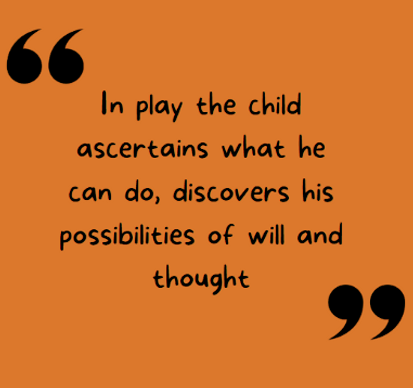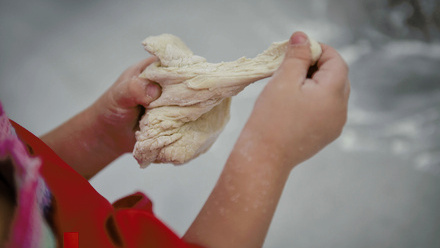Play Theory Series: Friedrich Froebel
Modern early years curriculums are built around the value of play, understanding it as an unprecedented language for early learning and development. Although the importance of play within learning theory in children’s social and emotional development is something that is widely recognised today, it has only become an established philosophy since the mid-to-late 19th century!
Who was Friedrich Froebel?
Friedrich Froebel (1782-1852) was a German philosopher and educator who, inspired by the methods of Johann Pestalozzi a generation before, went on to open his own school and train other teachers, including women (at a time education was a male-dominated profession) to work with young children. He is most well-known for his publication On the Education of Man, exploring his philosophy for learning, and later establishing the original ‘kindergarten’ in 1837.

What are some of Froebel’s main principles?
Froebel’s main principles and their impact extend far beyond this article… and research continues even today, into the perspectives and approaches that his work has so heavily inspired.
The importance of play
Froebel was a pioneering theorist when it comes to the value that play has for learning. His understanding of play contributes to how we integrate play-based approaches into young children’s learning and development even today.! The Curriculum for Wales pays particular attention to play as a child’s fundamental right, influencing not only thinking and learning, but also emotional regulation and independence. In Scotland, Realising the Ambition, “play is an intrinsic part of human nature” that is well-documented as an essential role for children’s wider development. The Early Years Foundation Stage in England highlights playing and exploring as a characteristic of effective teaching and learning that, allowing children to experience in a playful way, creates meaningful opportunities for development and learning.
Valuing the unique nature of childhood and the child
A child-centred approach is something we consider to be best practice around the world, listening to children’s voices, following their interests and recognising their individual identity and sense of self. Froebel developed a strong sense of child-centredness to the curriculum, acknowledging that an effective learning environment is one that is tailored to the individual needs of the child and recognises how learning should be adapted to the child, and not the other way around.
Independence is integral
Froebel strongly encouraged children to think independently and explore ways to solve problems on their own too. This sense of freedom comes with the responsibility for being considerate of others and the surroundings. It is something that is earned through the child’s efforts whilst being strongly supported by adult guidance at this age.
Unity
Practice today encourages professionals to think about the child as a whole; – their home life, their physical health, their mental wellbeing, their sense of self, their language development. Children are a kaleidoscope of growing and ever-changing attributes that, as professionals supporting their development, we need to consider as all connected, influencing one another.
Froebel’s philosophy is firmly held in a sense of connectivity, between aspects of the individual, individuals to the community, and the community to the surrounding natural world too. Developing a strong sense of belonging within the community was established within Froebel’s own Kindergarten and is something we see throughout the curriculums of early education and care today.






